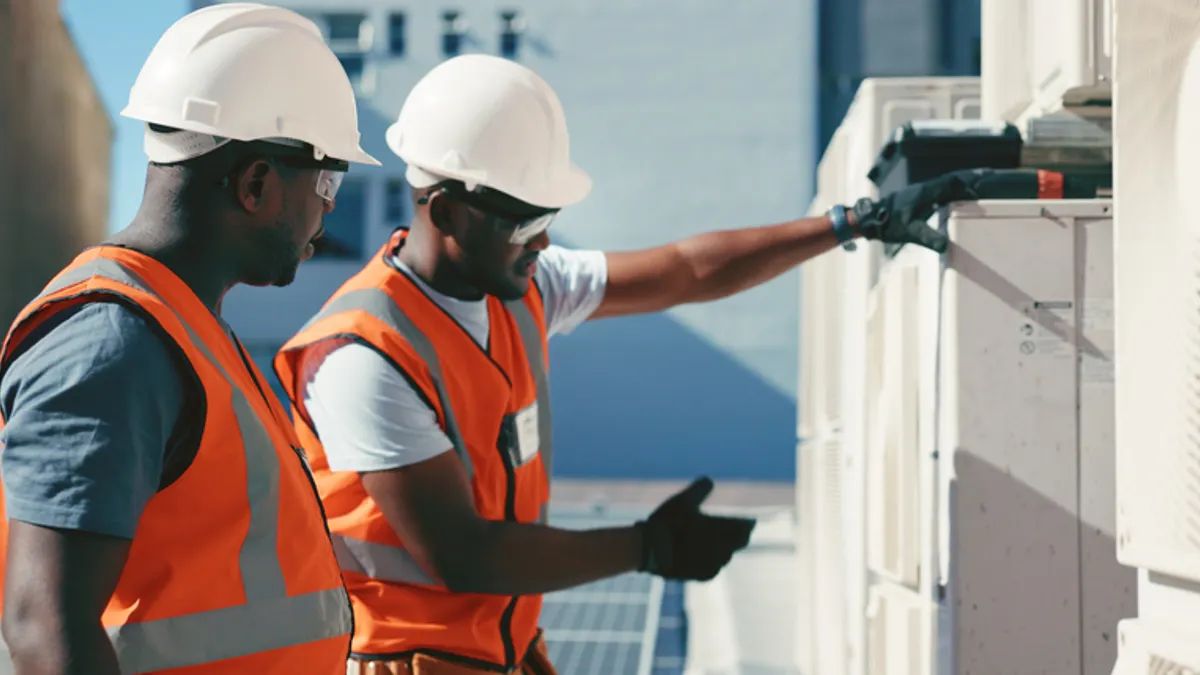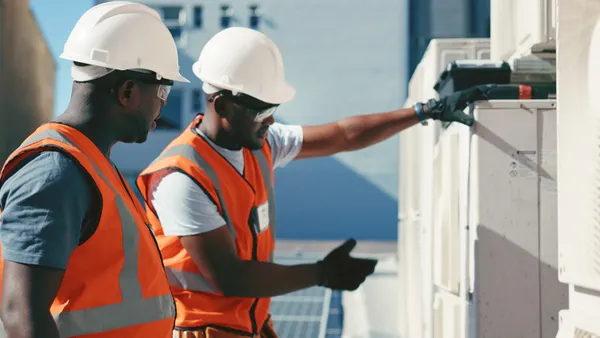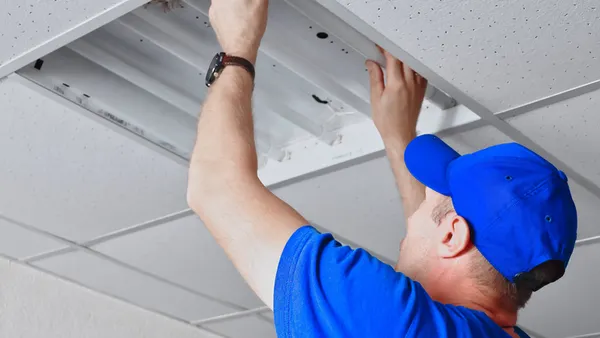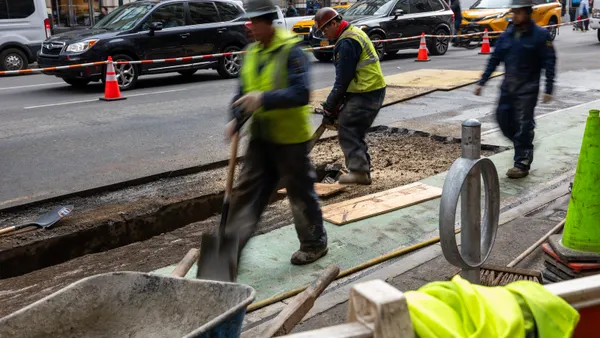Dive Brief:
- The CEOs of Carrier Global Corp. and Lowe’s are leading a Business Roundtable workforce initiative announced this summer to address worker shortages in the skilled trades.
- The program will focus on trades in four industries: industrial and manufacturing, construction and building, maintenance and repair, and energy.
- For every 20 job openings in the skilled trades, there is only one net new employee, according to the Business Roundtable’s news release.
Dive Insight:
Dane Linn, the Business Roundtable’s senior vice president of corporate initiatives, said the initiative will help companies identify potential solutions to workforce challenges more quickly, even if that means sharing tips with a competitor.
“Why pretend that the problem that Lowe's is facing is so unique from the problem that Home Depot is facing?” Linn said.
Linn added that he sees this as an issue that impacts a broad swath of companies. For example, JP Morgan Chase needs electricians for its facilities.
Some companies have focused on boosting training opportunities at postsecondary schools. Lowe’s, for example, has issued $43 million in grants since 2023 to community and technical colleges for recruitment and training in carpentry and construction, HVAC, electrical, plumbing and property maintenance, according to a company news release.
Carrier Global Corp. recently announced a program “to hire 1,000 U.S. service technicians and train more than 100,000 climate solutions service and sales professionals over the next five years.”
Carrier Chairman and CEO David Gitlin said one of the ways to enhance training in the skilled trades is through new technologies.
“What has changed is using things like virtual reality and augmented reality because it can give a much different virtual training experience than on-site training,” he said during the Business Roundtable’s CEO Workforce Forum, where the new initiative was announced. “It really supplements it very well.”
While technology continues to advance, Lowe’s Chairman and CEO Marvin Ellison said skilled trades workers will be more in demand than ever.
“AI isn’t gonna fix a hole in your roof, it’s not going to respond to an electrical issue in your home, it’s not going to stop your water heater from leaking,” he said during the forum.
He added that “corporate jobs” are the ones most likely to be “supplemented” by AI.
Linn said the workforce initiative is still in the early stages and that a little under 20 companies have joined the effort. The Business Roundtable is planning to recruit more companies in the coming months.
“An electrician is an electrician is an electrician, and they all go through the same training,” he said. “So what does that look like to train individuals at scale? And I think that's what we're solving for, and that's the beauty and the value of trying to solve this problem with some of America's largest companies. We have the opportunity to produce significant numbers of individuals who have the skills to fill these gaps.”















